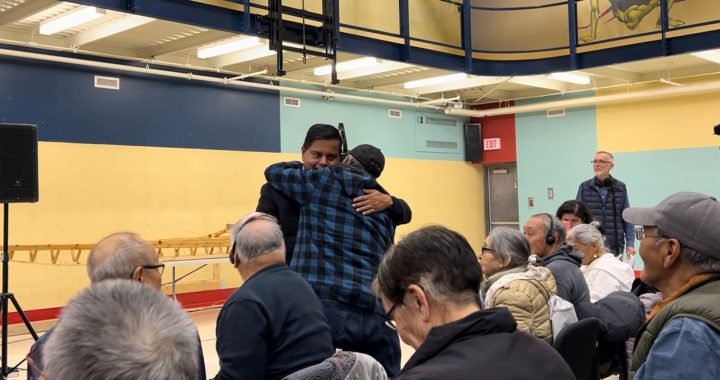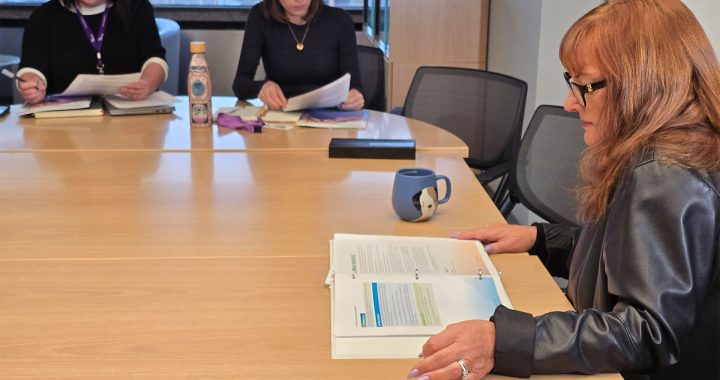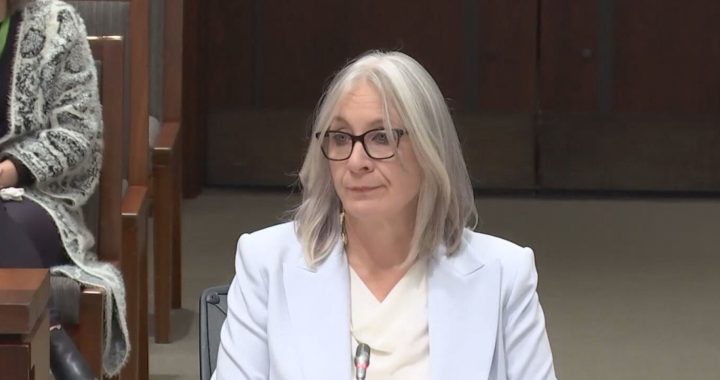Jorge Barrera
APTN National News
The Canadian Human Rights Tribunal on Tuesday rapped Indigenous Affairs’ knuckles over the pace of its response to a January decision that found the department’s funding of child and welfare services on reserves discriminated against First Nation children.
The tribunal released an “updated order” on the remedial relief it requested in January as part of its landmark human rights ruling on First Nation child welfare services. The tribunal’s updated order found the department’s response inadequate and issued updated instructions, including deadlines, to Indigenous Affairs to draft a clear plan on how it will change the way it delivers the program.
“This is the season for change,” said the updated order, in a section using bold-black letters. “The time is now.”
The tribunal’s updated order also requires the department to immediately begin implementing Jordan’s Principle on all jurisdictional disputes involving First Nation children—whether the disputes be between Ottawa and the provinces or between federal departments. Jordan’s Principle basically calls for governments to provide the care First Nation children need before sorting out which jurisdiction is responsible for paying.
“While it appreciates the federal government’s commitments and efforts to date, the (human rights tribunal) panel requires more clarity from (Indigenous Affairs) moving forward to ensure its orders are effectively and meaningfully implemented,” said the tribunal’s updated order.
In its January decision, the human rights tribunal demanded the federal government make sweeping changes to the way it manages and funds on-reserve child welfare services. The tribunal found that current funding formulas create an incentive to remove children from their families. The decision covered all on-reserve child welfare programs delivered across the provinces and in the Yukon.
The decision was a resounding victory for the First Nation Child and Family Caring Society and its president Cindy Blackstock, who first launched the human rights complaint, with the Assembly of First Nations, back in 2007.
“Again, the tribunal is putting the interests of children first,” said Blackstock, in response to Tuesday’s updated order. “This will improve the lives of many children.”
The January decision found that funding schemes used by the department for on-reserve child welfare services discriminated against First Nation children. The tribunal ordered Indigenous Affairs to “immediately remove the most discriminatory aspects” and to “cease its discriminatory practices and reform the…program to reflect the findings in the decision.” The decision required the department to respond to the tribunal on how it planned to implement these changes.
On Tuesday, the tribunal said the federal governments was moving too slow.
“While the panel did request clarification on certain remedial items and understood the federal government may need some time to review the decision and develop a strategy to address it, that was three months ago and there is still uncertainty amongst the parties and the panel as to how the federal government’s response to the decision addresses the findings,” said the tribunal’s updated order. “The panel appreciates that some reforms to the…program will require a longer-term strategy; however, it is still unclear why or how some of the findings…cannot or have not been addressed within the three months since the decision. Instead of being immediate relief, some of these items may not become mid-term relief.”
The tribunal said it would now “supervise the implementation of its orders by way of regular detailed reports by (Indigenous Affairs).” The tribunal ordered Indigenous Affairs to provide, within four weeks, a “comprehensive report” that would include budget allocations for First Nation child welfare agencies, detailed calculations of those budgets and adjustments flowing from the tribunal’s January decision, along with implementation timelines.
On Jordan’s Principle, the tribunal found Indigenous Affairs’ and Health Canada’s response on the issue did not meet the spirit of the January ruling. The federal government says Indigenous Affairs and Health Canada “have begun discussions on the process for expanding the definition of Jordan’s Principle,” according to the updated order.
“The (tribunal) did not foresee this order would take more than three months to implement,” said the updated order. “The order is to ‘immediately implement,’ not immediately start discussions to review the definition in the long-term. There is already a workable definition of Jordan’s Principle that has been adopted by the House of Commons…The (tribunal) sees no reason why the current definition cannot be implemented now.”
The tribunal gave Indigenous Affairs two weeks to confirm it was implementing the Jordan’s Principle order.
The tribunal also said it would soon be ruling on a submission from the Nishanwbe Aski Nation (NAN) which filed a motion seeking interested party status. NAN wants to a say in tailoring the tribunal’s decision to remote northern Ontario First Nations.
The tribunal said its ruling on NAN would likely impact any of the relief issues stemming from the specific 1965 agreement that covers on-reserve child welfare services in Ontario.
Indigenous Affairs Minister Carolyn Bennett’s was not able to immediately comment on Tuesday’s order.
The updated order summarized Ottawa’s response to date, which included an increase in funding for child-welfare programs on reserve in budget 2016 which allocated $634.8 million over five years and $71.1 million in this fiscal year. Ottawa has also committed to “full-scale” reform of the program including: more funding for an engagement process for medium and long-term reform; a review of the Ontario agreement; re-establishing a national advisory committee.
@JorgeBarrera









